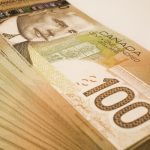The euro advanced to the strongest level in more than two-months against the US dollar after yesterday the European Central Bank decided to hold its main interest rate at a record low and announced that inflation is expected to gradually accelerate, easing concerns central banks officials will add monetary stimulus.
Having reached a session high at 1.3882 at 09:13 GMT, EUR/USD consolidated at 1.3878, adding 0.12% for the day. Support was likely to be received at March 6th low. 1.3722, while resistance was to be encountered at December 27th high, 1.3894.
Demand for the 18-nation common currency was supported after the Governing Council of the ECB maintained its benchmark interest rate at a record-low 0.25% at its meeting on Thursday. The Council also decided to keep the deposit rate at zero and the marginal lending rate at 0.75%.
“A large part of the market was expecting some form of action from the ECB today, or some indication that monetary easing would be coming in the very near future,” Omer Esiner, chief market analyst in Washington at the currency brokerage Commonwealth Foreign Exchange Inc., said in a Bloomberg interview yesterday. “We didn’t get either of those things, which is why the euro is trading higher across the board.”
The ECB also predicted that inflation will gradually accelerate. According to central banks estimates inflation in the euro area, which was at 0.8% last month, will accelerate to 1.7% in the fourth quarter of 2016. The cost of living will rise 1% this year, while it will accelerate to 1.3% in 2015 and an average 1.5% in 2015.
Pressure on central bank’s officials to add stimulus was eased after reports revealed stronger inflation and economic output in the euro area.
Last week, Eurostat reported that the inflation rate had rebounded from a 4-year low of 0.7% in October, which prompted the ECB to cut the main interest rate unexpectedly in November. Inflation in the euro area grew at an annualized rate of 0.8% in February, the same as in the previous month and exceeding analysts’ projections for a 0.7% increase.
At the same time, core consumer prices, which exclude volatile items such as food, energy, tobacco and alcohol increased at an annualized rate of 1% in February, exceeding experts’ forecasts for a 0.8% advance and up from January’s 0.8% increase. February’s reading was also the strongest since September.
While the recovery remains fragile, with inflation still remaining less than half the ECB target of 2%, which the central bank uses to define price stability, economic data in the past four weeks seemed encouraging. Gross domestic product in the 18-nation common currency area rose 0.3%, more than analysts had projected, mainly driven by stronger expansions in Germany, France, Netherlands and a return to growth in Italy. In addition, economic sentiment jumped to more than a 2-1/2-year high last month, while services and manufacturing output surged the most since June 2011.
The euro strengthened 6.4% during the past 12 months, the third best performer of 10 developed-nation currencies tracked by Bloomberg Correlation-Weighted Indexes, while the dollar fell 0.1%.
Meanwhile, greenbacks demand was supported yesterday, after a report by the US Department of Labor revealed the number of initial jobless claims for the week ended March 1st fell to 323 000 from 349 000 a week ago. Analysts had expected that the number of people filing for unemployment benefits will decline less to 336 000.
Data due to be released later in the day may show US payrolls rose by 146 000 in February, after increasing 113 000 in the previous month. In December, non-farm payrolls increased mere 74 000, the least since May 2012. At the same tome, The rate of unemployment in the country is expected to remain steady at 6.6%, or the lowest level since October 2008. The official figures are to be released at 13:30 GMT.
Elsewhere, AUD/USD rose to a session high at 0.9109 during the early phase of Asian trade, while at 7:22 GMT the pair was trading little changed at 0.9088, dipping a mere 0.02% for the day. Yesterday it touched 0.9113, which has been the highest level since December 11th. The Australian currency has appreciated 1.84% during the first week of March, following another 1.9% advance in February, which has been the largest gain in the past five months. Support was likely to be found at psychological level of 0.9000, while resistance was to be met at December 11th high, 0.9152.





